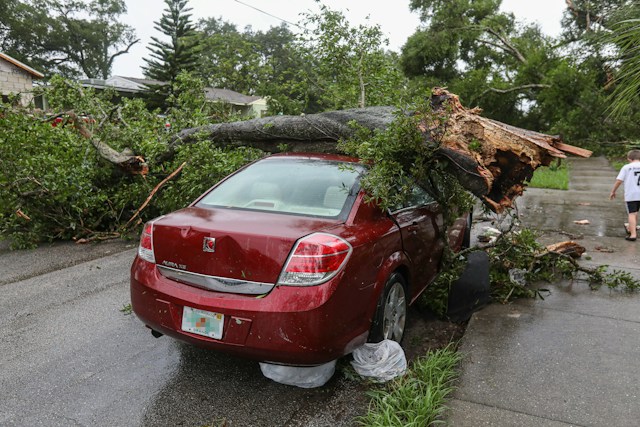In a recent revelation, a top official from South Africa’s largest insurer by assets, Old Mutual Ltd., highlighted the escalating threat that climate change poses to the country’s insurance sector. The impact, which has been dormant for nearly a decade leading up to 2020, is now causing reinsurance costs to surge by as much as 30%, according to Garth Napier, Managing Director at one of Old Mutual’s units. As we navigate the complex landscape of climate-related challenges, the insurance industry is grappling with a substantial increase in the frequency and severity of catastrophic events. In an exclusive interview on Friday, Napier drew attention to the considerable rise in reinsurance costs attributable not only to the ongoing COVID-19 pandemic but also to the worst flooding South Africa has witnessed in almost three decades. The 2022 floods claimed over 400 lives in landslides, leaving homes washed away in their wake. The financial toll on reinsurers, the entities that underwrite insurance companies, has been substantial. A staggering 30 billion rand ($1.6 billion) was paid out for the aforementioned catastrophe alone. Data from reinsurance broker Gallagher Re Inc. reveals that over the past three years, the industry has disbursed more than 100 billion rand to cover losses arising from the pandemic, floods, and riots. “The biggest concern for the industry is climate change driving a significant increase in the number of events that are happening,” Napier emphasized. He pointed out that there is credible data supporting the notion that both South Africa and the global landscape are witnessing a surge in the frequency of such events. Furthermore, the extent of the damage incurred is markedly higher than historical precedents. As the industry confronts these challenges head-on, it is anticipated that customers may experience a tangible impact on their premiums. Napier estimates that premiums across the board could see an increase of up to 10% this year.
The repercussions of climate change are not limited to the insurance industry alone; they extend to the broader economic and environmental landscape of South Africa. The nation, ranked 96 out of 182 countries in the Notre Dame Global Adaptation Initiative index, is highly vulnerable to the adverse effects of climate change. The World Bank underscores the economic risks posed by South Africa’s reliance on rain-fed farming and natural resources. In response to these challenges, Old Mutual Ltd. has taken a proactive stance. In the preceding year, the investment-management arm of the company announced its intention to vote against certain resolutions at Sasol Ltd.’s annual general meeting. This decision was driven by Sasol’s poor track record in achieving climate targets. As a major contributor to South Africa’s greenhouse gas emissions, accounting for about a fifth of the total, Sasol has committed to reducing emissions by 30% by 2030 and achieving net-zero emissions by 2050. The significance of such corporate actions lies in their potential to influence not only the insurance industry but also the broader economic ecosystem. As South Africa grapples with the multifaceted challenges of climate change, the need for a collective and coordinated response becomes increasingly evident. This shift toward sustainable practices is not merely a moral imperative; it is an economic necessity. Insurers, corporations, and policymakers must collaborate to mitigate the impact of climate change, safeguard the economy, and ensure the long-term resilience of South Africa in the face of an evolving climate landscape. As the nation navigates these uncharted waters, the imperative to prioritize climate resilience and sustainable practices has never been more pressing.
Article by: www.rateweb.co.za Image via: Unsplash.com

